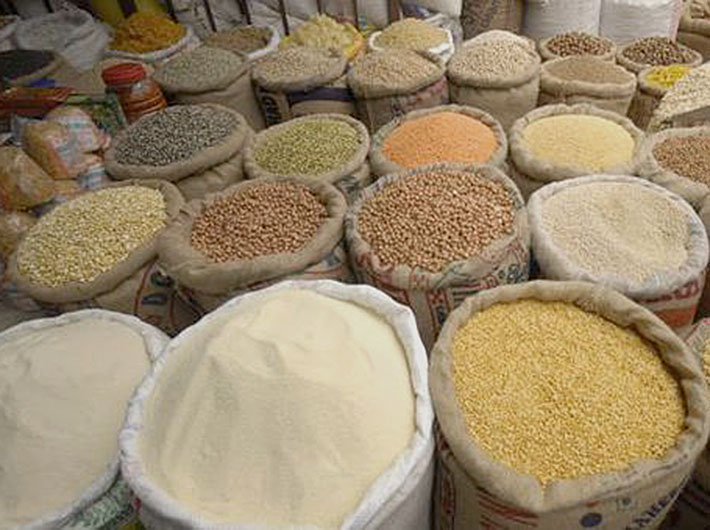The current crisis offers a rare opportunity to show that the government intervention, especially procurement, can be effective beyond rice and wheat
Enhancing domestic productivity and production rapidly and sustainably is the only reliable way of minimising volatility in prices of pulses, and safeguarding the interests of farmers and also consumers, said a report by Arvind Subramanian, chief economic adviser, ministry of finance.
The report, which was submitted to finance minister Arun Jaitley on Friday, said that short-term actions that apparently benefit consumers end up hurting them because production and availability of pulses decline over time.
“In turn, better incentives for farmers in the form of higher MSPs (to reflect the true social value of growing pulses compared to other crops) combined with effective procurement offers the best way of increasing domestic availability and preventing price spikes,” said the report of the panel that was set up following the recent surge in prices of pulses.
“The current crisis offers a rare opportunity to show that government intervention, especially procurement, can be effective beyond rice and wheat. It is also a rare opportunity for pulses to get the policy attention it deserves. To this end, especially as prices decline, government procurement must be on war footing,” it added.
In the wake of two successive years of weak monsoons in 2014 and 2015 and the resulting mismatch between demand and supply, prices of pulses rose sharply, leading to higher inflation and straining the purchasing power of consumers all over India. This is being followed in the current kharif season by the opposite development: a sharp increase in domestic production combined with a surge in global production of pulses. The resulting decline in prices threatens to affect farmers’ incomes and livelihoods, said the report “Incentivising Pulses Production Through Minimum Support Price (MSP) and Related Policies”.
The report went on to say that India has been in the grip of a pulses crisis, or rather crises, in the last few years. The proximate problem is two years (2014-15 and 2015-16) of poor pulses production in the wake of weak monsoons, resulting in excess demand and rising imports.
“But in recent months, scarcity has ceded to surplus, near-famine to near-feast. High prices in the pre-kharif sowing period and a good monsoon have led to a sharp increase in acreage planted. In anticipation of this positive supply shock (in India and overseas where too supply has surged), prices have started plummeting. The implications for farmers and their livelihoods are dire”
It said that from a consumption perspective, pulses are going to be increasingly important in the dietary habits of the average Indian consumer. Normatively, this is desirable because the average Indian under-consumes protein.
“The average Indian consumes about 100 percent less protein than those in other countries at a similar level of development. Given the generally poor levels of nutrition and health (reflected in stunting rates), increasing protein consumption is a high policy priority. Further, given the low cross elasticity of substitution in demand between pulses, there is a need to ensure the availability of all pulses and not favour any one.”
The report added that more protein does not necessarily mean more pulses. After all, there are other sources of protein including eggs, meat, poultry, and soya. But rough estimates suggest that for the average Indian consumer, pulses are the lowest cost source of protein.
“Given the evolving dietary pattern in favor of pulses, and if current trends on the production side of pulses continues, there will be a large demand-supply mismatch for pulses in the medium term. The experience of 2014-15 and 2015-16, which witnessed large increases in pulses prices, will become a regular pattern.
“This mismatch cannot be filled by imports. India is the world’s largest producer of key pulses, especially tur, accounting for 67.7 percent of the global total. More to the point, India’s imports account for a significant share of the rest of the world’s production, about 30 percent in the case of tur. Consequently, if demand continues to race ahead of domestic supply, it will become increasingly difficult – and expensive – to make up the shortfall from abroad.”
Read the full report
here
